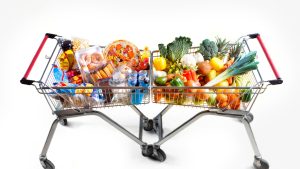
Consumers prioritise food safety in purchases
Consumers prioritising food safety: summary Food safety third biggest driver of EU consumer choices after cost and tasteSeven in ten are personally interested in food safetyPesticides, antibiotics, hormones and steroids in meat, and food additives are top consumers concernsEight in ten consumers are aware of food safety regulations Less than half of consumers trust industry when it comes to food safety More European consumers are aware of food safety than ever before, according to a recent survey by the European Food Safety Authority (EFSA). Not only that, but they are prioritising it in their purchase decisions.
The findings were part of a survey EFSA conducts every three years among consumers in the 27 EU member states and seven candidates states.
Food safety is a big influence on choiceFood safety is one of the most influential factors affecting consumer food choice, according to EFSA.
In fact, it is the third most important factor, behind only cost and taste. It outpaced nutrient content, origin, environmental impact and ethical beliefs as a concern.
Furthermore, around seven in 10 Europeans are personally interested in food safety, although only four in 10 put food safety on the same level as health (this has declined slightly since the last survey).
Pesticides remain the primary concern in the area of food, followed closely by hormones, antibiotics and steroids used in meat.
Food additives are slightly less of a concern than these two, but still front of mind for more than one in three consumers.
Most notably, concerns in all three of these areas have fallen since the last time the survey was conducted, in 2022.
Cyprus had the highest level of concern about food safety, with 67% of consumers citing it, while Montenegro had the lowest, with 29%.
Greater awareness of food safetyWhile almost half of Europeans still take for granted that food being sold is safe, the number of people interested in food safety is growing.
Around 30% of people don’t look at food information because they feel that they know enough to mitigate food risks, compared with two in five that are simply confident that food will be safe.
Europeans understand food safety like never before (Bogdan Malizkiy/Getty Images)Nearly four in five consumers are aware that regulations exist to keep food safe, 76% are aware of the scientific expertise on hand to ensure this, and 68% agree that the EU has an institution to provide this advice.
They are also aware of specific food safety issues: alongside pesticides and additives, more than half of consumers are aware of animal disease, food poisoning, and microplastics in food, with awareness increasing in all of these areas since the last survey.
Just over half of consumers believe that animal and environmental issues have a strong impact on human health.
The most trusted sources on food safety are doctors and scientists, followed by farmers and consumer organisations. Fewer than half of consumers trusted the food industry itself on food safety, and fewer than a quarter trusted bloggers and celebrities (although trust in both these areas has increased slightly).
“The new figures on citizens’ awareness of EU food safety are hugely encouraging for EFSA and our many partners across Europe”, says Nikolaus Kriz, the EFSA’s executive director.
“We will continue to join forces with the European Commission and our national partners to communicate to citizens about how the food safety system benefits them.”











